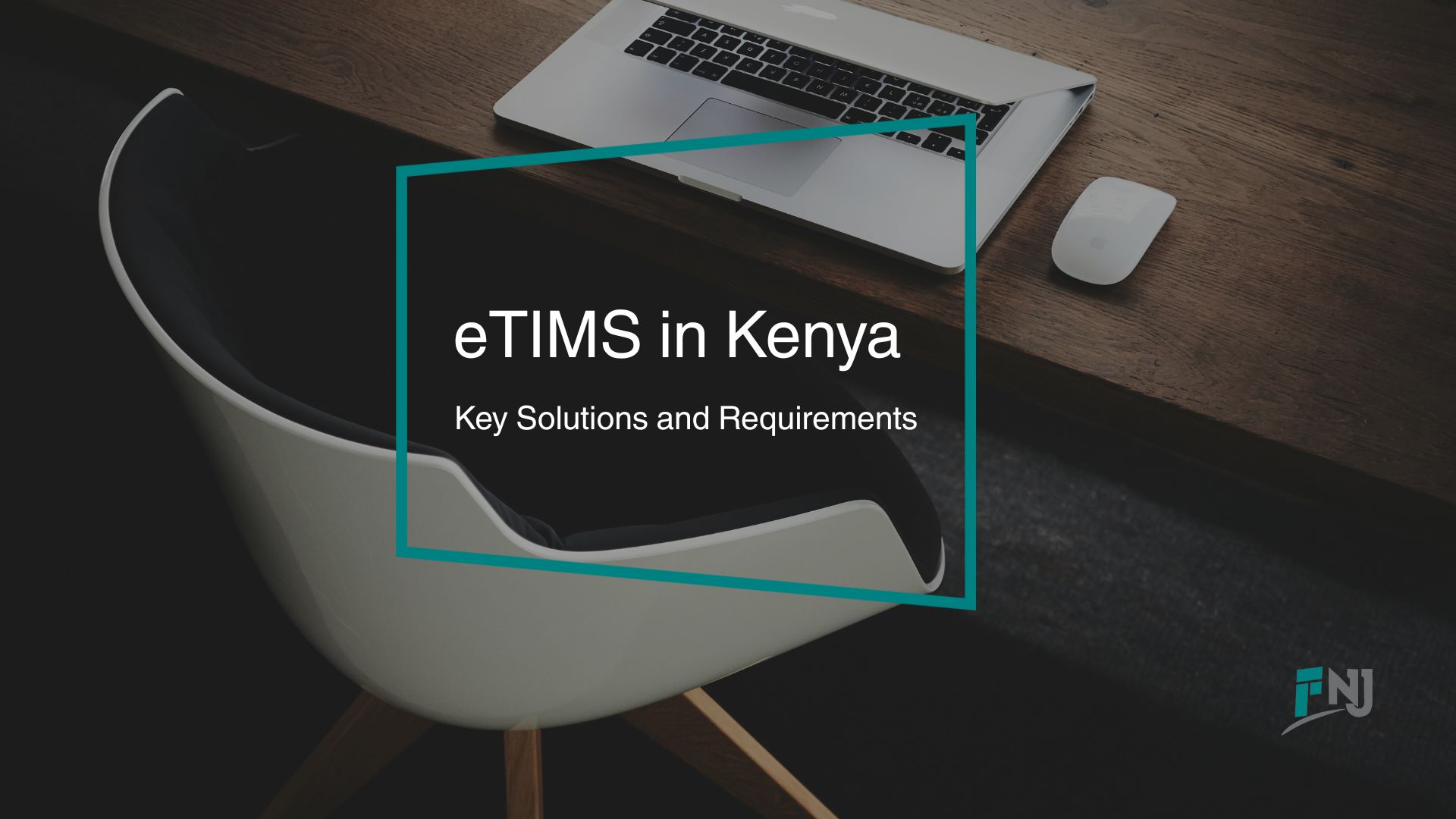The Electronic Tax Invoice Management System (eTIMS in Kenya) is an essential tool implemented by the Kenya Revenue Authority to promote transparency in tax invoicing.
This article provides insights into the structure, exemptions, and compliance requirements of eTIMS in Kenya, to aid organizations in maintaining adherence.
What is eTIMS in Kenya?
Electronic Invoice Management System (eTIMS) is a software system designed to facilitate electronic invoicing. It enables the generation and management of tax invoices digitally.
What are the Available eTIMS Solutions in Kenya?
eTIMS provides various solutions to accommodate different business needs. These solutions include:
- Device-Based Approach (ETR): This was the first solution to be rolled out. The high compliance costs associated with the solution led to the development of software-based alternatives highlighted below.
- Online Portal: Suitable for taxpayers with minimal transactions.
- eTIMS Client: A downloadable software accessible on multiple devices, such as laptops, computers, tablets, phones etc.
- System-to-System Integration Solutions (VSCU/OSCU): Involves integrating with existing software billing systems or ERPs. Virtual Sales Control Unit (VSCU) is implemented/hosted on the client side and is best suited for organizations with large volumes of invoices that need to be generated over a short period of time. Online Sales Control Unit (OSCU) is implemented and hosted at KRA and is best suited for systems that operate online.
- Simplified Solutions: Primarily used by MSMEs and they include USSD, eCitizen portal, and eTIMS Lite mobile app. VAT taxpayers are also able to onboard and invoice via the eCitizen portal.
- Reverse Invoicing & Buyer-Initiated Invoicing: Allows the buyer to generate a tax invoice on behalf of a small-scale seller.
It is worth noting that recent enhancements to eTims in Kenya have made eTims implementation simpler – these enhancements include; online eTIMS registration that does not require document uploads, auto-approval of service requests made by taxpayers, ability to onboard on multiple channels, among others.
What are the key legal requirements on eTims in Kenya?
The current framework in Kenya requires all taxpayers with business income to support expenditure using electronic tax invoices. A tax invoice for VAT purposes must be generated through electronic Tax Management System (eTIMS). In addition, tax invoices should be issued for both taxable and exempt supplies. Other related legal provisions include exclusions or exemptions from electronic invoicing and stock management, as well as penalties for non-compliance.
What is an eTIMS Receipt or Invoice?
An eTIMS receipt or invoice is a digital tax document that records sales made to customers. The key features of a valid invoice include;
- PIN of the seller.
- PIN of the buyer (optional).
- Date and time stamp.
- Description of supply and quantity (not generic).
- QR code.
- Control Unit Serial number.
- Control Unit Invoice number.
- Item Code (if applicable).
- Taxable value.
- Tax rate and total tax amount (where applicable).
- Total gross amount.
Invoices can be verified by scanning the QR code or using the invoice number checker online.
What is Reverse Invoicing and Buyer-Initiated Invoicing?
These are additional solutions introduced to address the needs of small businesses, including farmers, constrained by electronic invoicing. Both allow the buyer to generate the invoice on behalf of the seller. Buyer-initiated invoicing is accessible to all taxpayers via the eCitizen platform or USSD. Reverse invoicing requires system-to-system integration with eTIMS.
What are the Exemptions for eTIMS in Kenya?
The following transactions are excluded from eTIMS implementation in Kenya:
- Emoluments received or paid subject to PAYE under the Income Tax Act.
- Importation of goods under the East African Community Customs Management Act, 2004.
- Importation of services from a foreign country.
- Interest income from financial institutions as defined by the Income Tax Act.
- Investment allowance as provided under the Second Schedule of the Income Tax Act.
- Airline passenger ticketing.
- Any exemption granted by the Commissioner in accordance with the law.
In summary, understanding eTIMS in Kenya is critical in enhancing the overall tax compliance by organizations. This article has provided a general eTIMS guide for information purposes. At FNJ & Associates, we offer professional expert advisory to ensure your organization remains up-to-date and compliant with these evolving requirements. Contact us for tailored support on eTIMs and other tax strategies.

